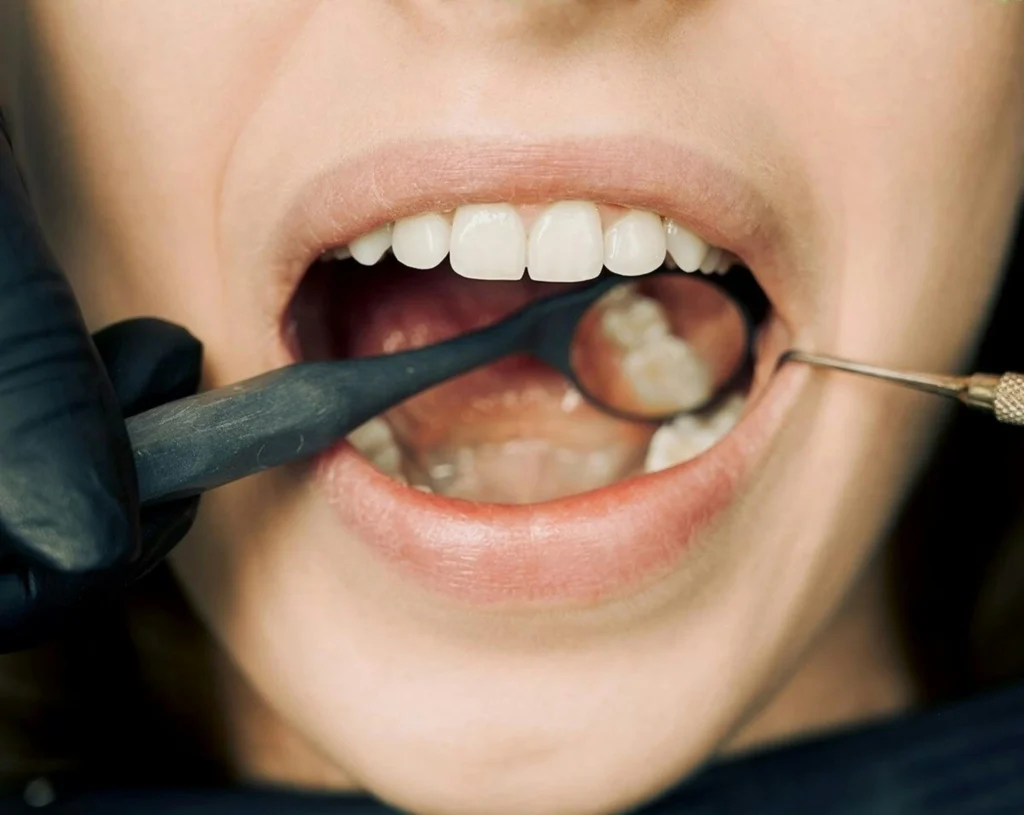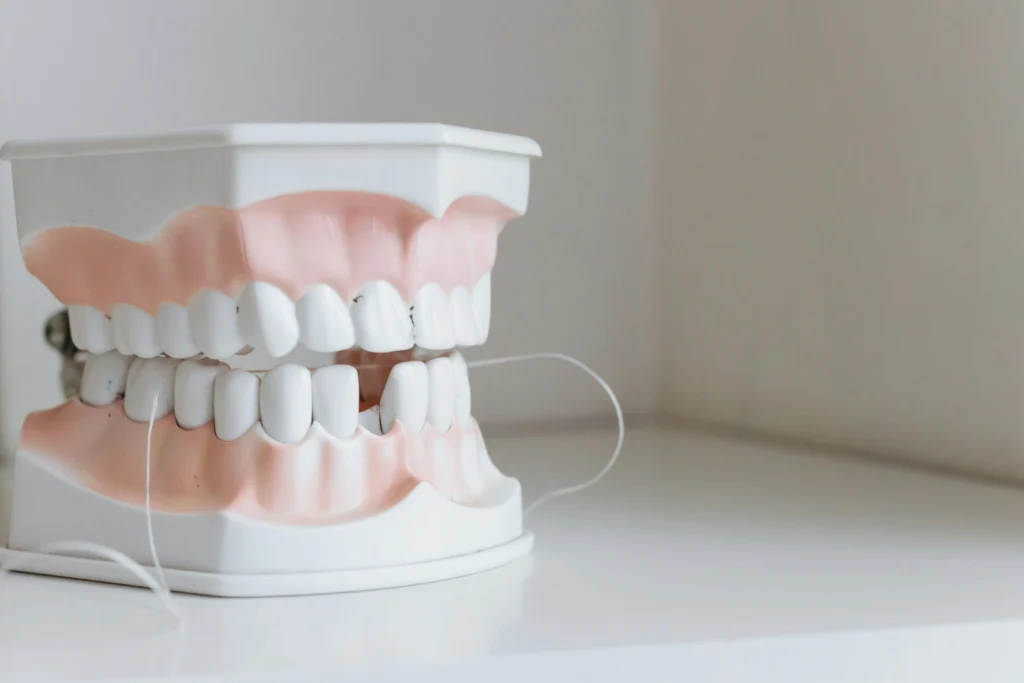If your dementia patient won’t brush teeth, you’re not alone. Many families struggle when a loved one living with Alzheimer’s or dementia resists daily oral care. Memory loss, confusion, fear, and even pain can make brushing feel overwhelming — for both patients and caregivers.
At Dental Home Services, we understand these challenges deeply. Our mobile dentists visit patients throughout New Jersey, providing compassionate, professional dental care right in the comfort of home. For caregivers, knowing how to approach brushing with patience and strategy can make an enormous difference in your loved one’s comfort and health.
Why Dementia Makes Brushing Difficult
When a dementia patient won’t brush teeth, it’s usually not stubbornness — it’s a response to fear or confusion. As the New Jersey Department of Human Services Prevention Bulletin on Oral Care (2022) explains, people with cognitive or developmental disabilities often struggle with instructions, anxiety, sensory changes, and loss of motor control. These challenges can make even simple tasks like brushing feel unsafe or unfamiliar.
Cognitive symptoms may cause:
- Trouble recognizing a toothbrush or toothpaste
- Forgetting how to brush or why it matters
- Discomfort with sensations like water or toothpaste foam
- Fear or defensiveness if someone else approaches their mouth
Mobility and physical factors can add to the difficulty. Some individuals experience muscle stiffness, tremors, or involuntary movements that make holding a toothbrush or sitting still hard. Others may experience oral pain from dry mouth, gum disease, or denture irritation, which makes brushing unpleasant.
The Health Risks of Skipping Oral Care

Avoiding brushing for too long can quickly cause dental and health complications. As the NJ Human Services Bulletin highlights, poor oral hygiene increases the risk of gum disease, root decay, and infections — which, in turn, can raise the risk of heart disease, pneumonia, or even choking during meals.
For seniors with dementia, these risks are magnified. Food particles, bacteria, and dry mouth can worsen discomfort and lead to tooth loss or systemic infections. If a dementia patient won’t brush teeth for several days or weeks, their overall quality of life can decline.
Our dementia and dental care guide explains how maintaining oral hygiene supports not only the mouth but overall well-being, comfort, and nutrition.
How to Encourage Brushing Gently
When a dementia patient won’t brush teeth, patience and creativity matter more than force. Here are gentle, evidence-based approaches you can try:
1. Create a Calm Environment
Reduce distractions — turn off bright lights, TV sounds, and background noise. Speak softly and smile. Anxiety can worsen resistance, but calm surroundings signal safety.
2. Demonstrate First
If your loved one doesn’t recognize the toothbrush, model the behavior. Brush your own teeth first, then hand them the brush. This visual cue often helps them remember what to do.
3. Use Familiar Tools
Stick with a toothbrush they know and like. Electric toothbrushes can help if manual brushing is tiring, but some dementia patients find the vibration startling. If that happens, try a soft manual brush instead.
4. Simplify Instructions
Use short, one-step cues such as “Let’s brush your teeth now.” Avoid complex explanations that might confuse or overwhelm them.
5. Adapt to Their Abilities
If brushing independently isn’t possible, help guide their hand gently. Always explain what you’re doing before touching their mouth. Using verbal praise and encouragement helps reduce resistance.
The NJ Department of Human Services also recommends suctioning or oral sponges if a person can’t “swish and spit.” For bedridden or mobility-restricted patients, these tools reduce bacteria safely without requiring rinsing.
For more detailed tips, read our related guide on how to brush dementia patient teeth.
When Dentures Complicate Brushing

Dentures can be another reason a dementia patient won’t brush teeth. Some individuals forget they’re wearing them or try to sleep with them, causing discomfort and infection. The NJ bulletin recommends:
- Removing dentures after meals for rinsing
- Brushing dentures daily with a soft brush
- Soaking overnight in a denture solution
- Rinsing well before reinserting
Our dentists often see patients with poorly fitting dentures that make eating painful or discourage oral care. If that sounds familiar, schedule an in-home dental visit to check fit and comfort.
Know When It’s Time to Ask for Help
If brushing feels impossible or your loved one’s oral health is worsening, you don’t have to handle it alone. A dementia patient who won’t brush teeth may benefit from a professional home visit.
At Dental Home Services, our team brings all necessary equipment for exams, cleanings, and denture care directly to your home, assisted living community, or nursing facility. Each appointment is adapted to the patient’s comfort level, using gentle, calm communication and shorter sessions when needed.
We specialize in treating elderly patients with Alzheimer’s and dementia, making care achievable even for those who haven’t seen a dentist in years.
Meet the Dentists Behind Dental Home Services

At Dental Home Services, our dentists are more than skilled clinicians — they’re compassionate professionals dedicated to making care accessible for seniors, disabled adults, and patients living with dementia.
Dr. Stu Rubin, our founder, created Dental Home Services over 25 years ago after witnessing the challenges his homebound father-in-law faced in accessing dental care. A Certified Dementia Practitioner and board member of Alzheimer’s New Jersey, Dr. Rubin has helped bring compassionate, mobile dentistry to hundreds of assisted living communities across the state.
Dr. Lindsay Rubin, our Director of Clinical Affairs, continues that mission today. A Tufts University School of Dental Medicine graduate, she trains other dentists in home care techniques and ensures that every visit is handled with patience and respect.
They lead a caring team of dentists who share their values — professionals with hospital, geriatric, and home health experience who believe everyone deserves comfort, dignity, and access to quality oral care.
If your loved one with dementia struggles with brushing or dental visits, our team is here to help. Contact us or call 1-800-842-4663 to schedule a gentle in-home appointment anywhere in New Jersey.
Family Dementia Support Beyond Dental Care
Sometimes, brushing issues are part of a larger caregiving challenge. In addition to dental support, local organizations can help families with respite care and education. Alzheimer’s New Jersey offers programs that give caregivers a break while ensuring safe, quality care for their loved ones.
Caregivers in New Jersey can also refer to the NJ Department of Human Services Oral Care Bulletin for detailed guidance on hygiene routines and equipment adjustments.
Keep Mouths Fresh Between Brushing
When a dementia patient won’t brush teeth, you can still reduce bacteria and odor between attempts. Offer water frequently to avoid dry mouth, and try mild sprays or rinses that freshen breath without strong flavors. For recommendations, see our article on sprays for breath.
If your loved one refuses toothpaste due to taste sensitivity, look for unflavored or low-foam varieties. Fluoride toothpaste remains important, but comfort should come first — even small progress is better than total resistance.
Building a Supportive Routine
Establishing consistency helps. Brush or attempt oral care around the same time each day, ideally after breakfast and before bed. If your dementia patient won’t brush teeth in the morning, try again later when they’re calmer or less tired.
Document patterns — when they’re more relaxed, which tools they tolerate best — and share those notes with visiting dentists. This teamwork helps everyone provide consistent, familiar care that reduces stress.
Why In-Home Dentistry Works Well

Home visits can eliminate nearly every barrier associated with dementia-related dental anxiety. At Dental Home Services, we bring the dentist’s office to you — complete with portable x-rays, sterilization equipment, and all the tools needed for cleanings, fillings, and denture adjustments.
Our dentist home visits allow seniors and caregivers to stay comfortable in familiar surroundings. Each visit is paced gently and coordinated with family or facility staff to reduce confusion and ensure safety.
To see what families say about their experiences, visit our reviews page.
Frequently Asked Questions About Dementia and Oral Care
Why won’t my dementia patient brush their teeth?
Refusal is often due to confusion, fear, or sensory discomfort. Gentle coaching, calm surroundings, and familiar tools can help.
Is it safe to help brush their teeth if they resist?
Yes, but approach slowly and with consent. Explain each step before touching their mouth, and avoid forcing the issue. Our how-to guide for brushing dementia patient teeth covers this in detail.
What happens if a dementia patient doesn’t brush teeth for weeks?
They may develop infections, gum disease, and bad breath, increasing health risks. In-home dental visits can help prevent these issues.
Can I get in-home dental help in New Jersey?
Absolutely. Dental Home Services travels statewide — and parts of NY — to provide dental care right in your home.
What if I need caregiver support beyond dental care?
Alzheimer’s New Jersey offers respite and wellness programs for families caring for individuals with dementia.
Gentle, Trusted Help When a Dementia Patient Won’t Brush Teeth 🦷
Helping a dementia patient who won’t brush teeth can test anyone’s patience, but you’re not alone. Small, consistent efforts and professional in-home care make all the difference.
At Dental Home Services, we combine expertise with empathy — offering comfort, clarity, and care wherever your loved one lives. Call 1-800-842-4663 or contact us online to book a home visit anywhere in New Jersey.

